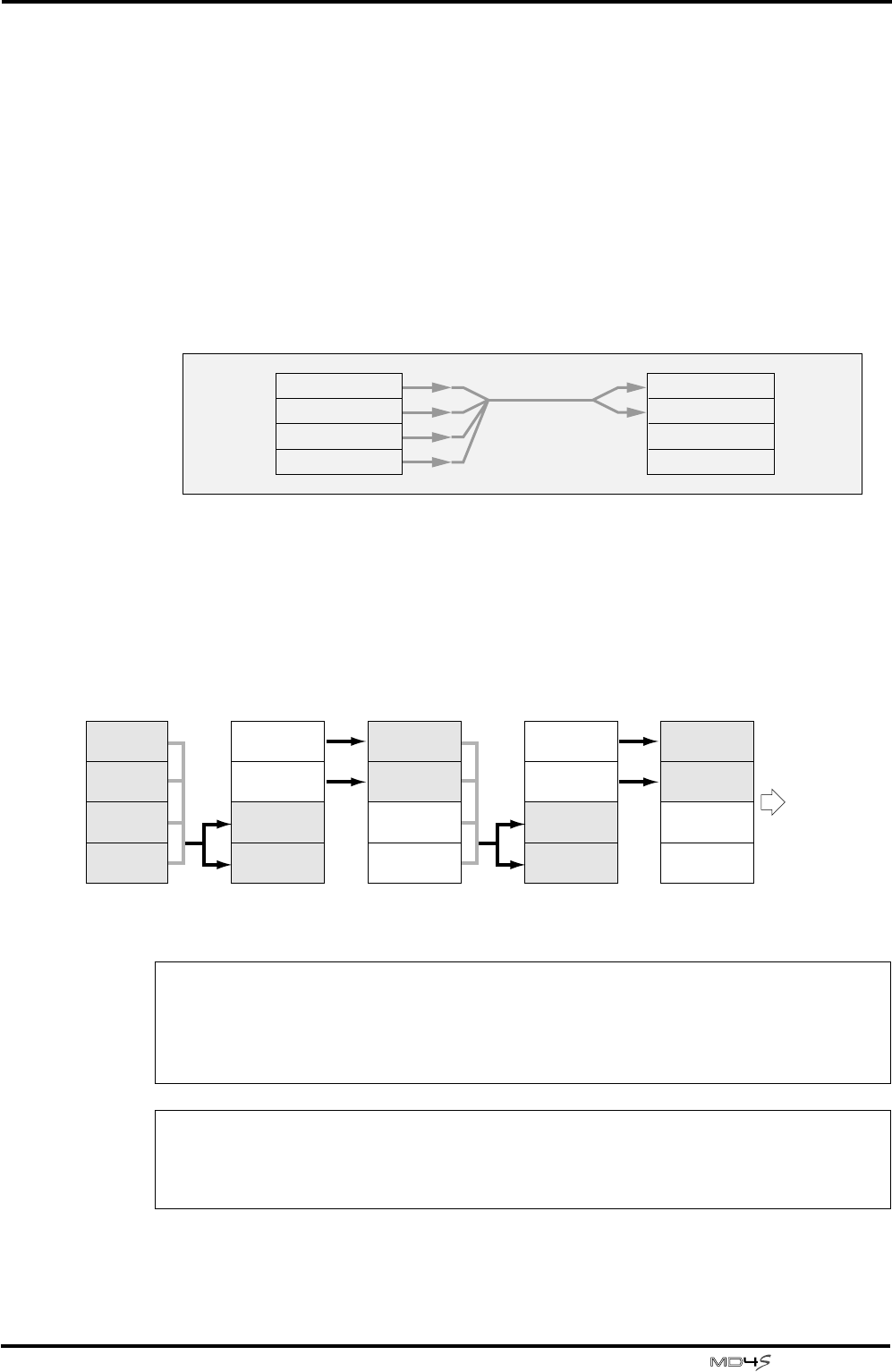
Ping-pong recording 39
—Owner’s Manual
Ping-pong recording
The process of mixing two or more previously-recorded tracks and re-recording them onto
one or two tracks is called “ping-pong recording.” By ping-ponging, you can free up other
tracks to record additional parts, so this is a useful technique when you wish to record a larger
number of parts than you have actual tracks. Since the MD4S records signals digitally, it is able
to playback a track while recording onto the same track. Thus, while a conventional cassette-
tape type MTR needs one or two vacant tracks in order to ping-pong, the MD4S allows you to
ping-pong even if there are no unused tracks.
The following diagram shows the process of mixing four recorded tracks into a stereo pair,
and continuing to overdub while ping-pong recording additional tracks.
Note: Since the MD4S records data in digital form, repeated ping-pong recording as shown
above will not impair the audio quality. However, please be aware that since the MD4S’s
mixer section is analog, repeated ping-pong recording will result in a very small decrease in
audio quality (although compared to the result of ping-pong recording on a tape MTR, this
loss will be virtually undetectable).
Tip: If you ping-pong record tracks 1–4 to tracks 3 and 4 as shown above, the content that
had been recorded on tracks 3 and 4 will be erased. Before you ping-pong record, we
recommend that you copy the song to backup the original. (See “Copying/converting a song
(Song Copy)” on page 76 for more information.)
MD4S
Track 1
Track 2
Track 3
Track 4
Track 1
Track 2
Track 3
Track 4
Stereo mix
Drums+Guitar+
Bass+Vocal
Drums
Guitar
Bass
Vocal
A
B
C
D
A (vacant)
B (vacant)
A+B+C+D
(STEREO)
E
F
A+B+C+D
(STEREO)
L
R
Overdubbing
(parts E and F)
Ping-pong
recording
Ping-pong
recording
Overdubbing
(parts G and H)
Mixdown
(parts A~H)
E (vacant)
F (vacant)
A+B+C+D
+E+F
(STEREO)
G
H
A+B+C+D
+E+F
(STEREO)
L
R
Track 1
Track 2
Track 3
Track 4


















